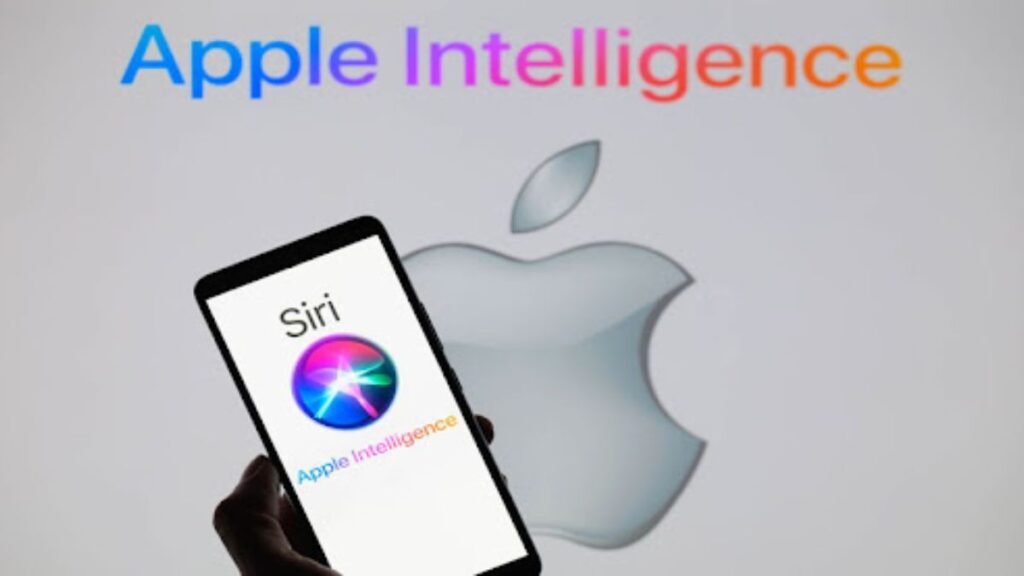In a comprehensive report by Bloomberg’s Mark Gurman, new details have emerged highlighting Apple’s ongoing struggles with its artificial intelligence (AI) strategy—particularly the anticipated Siri upgrade. Contrary to expectations, the upgraded Siri, powered by Apple Intelligence may not be featured at WWDC 2025, signaling deeper issues within Apple’s AI division.
- Also Check: Infinix GT 30 Pro Launch Set for May 21: Key Specifications, Features, and More Revealed
Why Apple Is Lagging in the AI Race
Despite being an early pioneer with Siri, Apple has significantly fallen behind in the generative AI boom led by competitors like Google, Microsoft, and OpenAI. According to Gurman, internal hesitation and leadership disagreements have severely delayed Apple’s AI advancements.
Internal Resistance and Leadership Conflicts
Key executives, including software head Craig Federighi, were initially skeptical about generative AI. Federighi reportedly resisted major investment, believing AI wasn’t central to Apple’s core strengths. This conservative stance clashed with the vision of other senior leaders, some of whom saw AI as a transformative leap that Apple could not afford to ignore.
AI Chief John Giannandrea, who joined from Google in 2018, faced obstacles trying to unify Apple’s fragmented AI efforts. Despite pushing for a centralized AI strategy and increased investment, internal friction hindered progress.
Siri and Apple Intelligence: A Troubled Journey
Apple Intelligence, introduced at WWDC 2023, promised features such as AI-powered writing tools, smart notifications, Genmoji (custom emoji), and a next-generation Siri experience. However, most of these features missed their original release dates:
- AI writing features launched over a month after the iPhone 16 release.
- Genmoji became available in December 2023.
- Notification upgrades rolled out in March 2024.
The Siri upgrade, considered a flagship feature of Apple Intelligence, has been continuously delayed. In early 2025, Federighi reportedly tested iOS 18.4 and found core features like voice-based document retrieval were non-functional. In some internal demos, Apple used pre-recorded videos instead of working prototypes. As a result, the Siri upgrade has been postponed indefinitely.
Legal Trouble Over Siri Promotion
Despite the delays, Apple continued marketing these features, which has led to class-action lawsuits accusing the company of false advertising. This legal pressure further highlights the gap between Apple’s promotional claims and the actual performance of its AI systems.
What to Expect at WWDC 2025
Insiders suggest that Apple will not heavily focus on Siri at WWDC 2025. Instead, the tech giant is expected to shift attention toward launching iOS 19 and expanding Apple Intelligence across more applications.
Here are some of the updates expected at WWDC 2025:
- AI-powered battery optimization tool to improve iPhone battery performance.
- Project Mulberry – a virtual AI health coach for personalized wellness tracking.
- Third-party voice assistant integration for European users, separate from the Siri-ChatGPT integration.
- Continued development on “LLM Siri”, a project aimed at revamping Siri’s outdated architecture.
Interestingly, Apple is reportedly distancing Siri from the “Apple Intelligence” brand in its marketing, indicating that Siri’s damaged reputation may hinder the broader AI vision.

Behind the Scenes: Apple’s Missed AI Opportunities
The report paints a picture of a company caught between its polished-product tradition and the need for rapid AI innovation. Apple has invested significantly less in GPUs and AI talent compared to competitors like Google and Microsoft. Its attempt to acquire companies such as Mobileye Global Inc. failed, and its Apple Car project—which included the Apple Neural Engine—has largely been abandoned.
Some insiders described Apple’s AI strategy as resembling a “sinking ship.” Longtime executive Eddy Cue reportedly warned that the iPhone could become irrelevant within a decade if Apple doesn’t act faster in the AI space.
The Fall of Siri: From Innovation to Obsolescence
Siri was introduced with much fanfare just before Steve Jobs’ passing, and was once seen as a futuristic voice interface. Jobs envisioned Siri as a foundational user experience tool—but after his death, development stalled.
By 2014, attempts to deeply integrate AI into iOS reportedly met resistance, especially from Federighi. While Apple acquired smaller AI startups like Turi and Tuplejump, these efforts did not scale. Apple focused instead on areas like Maps, Photos, and Face ID—leaving Siri to stagnate.
Conclusion: Apple’s AI Future Hinges on Strategy and Execution
Mark Gurman concludes that while Apple still holds tremendous market power and technical resources, its slow AI adoption, fragmented leadership, and delayed execution have severely cost the company its edge in the AI race.
Apple Intelligence will likely continue to evolve gradually, but without aggressive internal reform and a clearer strategic direction, Apple risks falling further behind in one of the most critical technological shifts of this decade.
As WWDC 2025 approaches, it’s clear: Apple has big plans, but its AI ambitions remain a work in progress.









